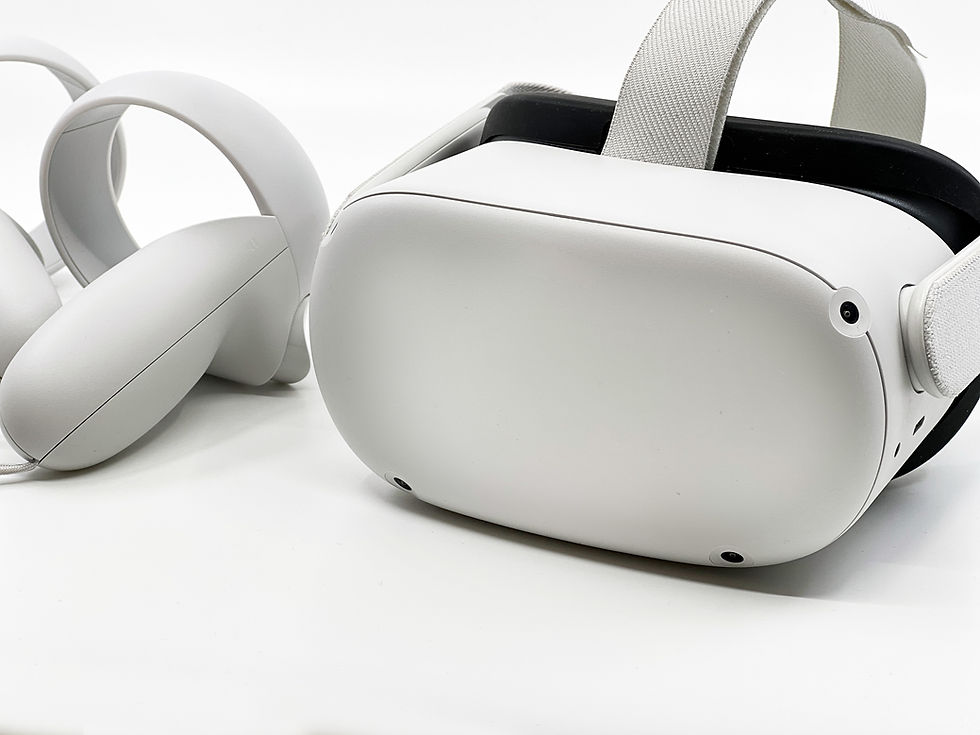Exploring the Potential of VR in Enhancing Soft Skills Training
- Mark Cullens
- Jan 10, 2024
- 3 min read
In the dynamic landscape of education and professional development, Virtual Reality (VR) is emerging as a revolutionary tool. While VR is often associated with gaming and entertainment, its potential in enhancing soft skills development is increasingly being recognised. This blog post delves into the transformative impact of VR on soft skills training, exploring its applications and the benefits it brings to individuals and organisations.

Understanding Soft Skills
Soft skills, often referred to as interpersonal or people skills, encompass a broad range of attributes that go beyond technical expertise. Communication, teamwork, leadership, adaptability, and emotional intelligence are just a few examples of soft skills that play a pivotal role in personal and professional success. Unlike hard or technical skills, which can be quantified and measured, soft skills are more subjective and challenging to teach through traditional methods.
The Immersive Learning Experience
VR, with its ability to create realistic and interactive environments, provides a unique platform for immersive learning. When it comes to soft skills development, this technology offers an unparalleled opportunity to simulate real-world scenarios where individuals can practice and refine their interpersonal abilities in a risk-free environment.
Applications of VR in Soft Skills Development:
Communication Skills:
VR facilitates realistic simulations of conversations and presentations, allowing users to practice verbal and non-verbal communication.
Interactive scenarios with virtual avatars help individuals navigate different communication styles and challenging situations.
Teamwork and Collaboration:
Virtual team-building exercises enable participants to collaborate on projects, fostering teamwork and improving coordination.
Simulated group tasks promote effective communication and the development of collaborative strategies.
Leadership and Decision-Making:
VR scenarios allow users to step into leadership roles, making critical decisions and experiencing the consequences in a controlled environment.
Realistic leadership simulations enhance decision-making skills and prepare individuals for leadership challenges.
Conflict Resolution:
Virtual scenarios help individuals practice resolving conflicts, addressing diverse perspectives, and finding mutually beneficial solutions.
Immediate feedback and reflection opportunities contribute to continuous improvement.
Empathy and Cultural Competence:
VR can simulate diverse cultural settings, fostering empathy and understanding of different perspectives.
Virtual experiences promote cultural competence by allowing users to navigate cross-cultural communication challenges.
Benefits of VR in Soft Skills Training:
Engagement and Retention:
Immersive experiences capture attention and maintain engagement, leading to better retention of learned skills.
The emotional impact of VR simulations enhances the transfer of knowledge to real-world situations.
Risk-Free Environment:
Participants can make mistakes and learn from them without real-world consequences, creating a safe space for experimentation and growth.
Confidence-building through repeated virtual scenarios contributes to improved real-world performance.
Scalability and Accessibility:
VR soft skills training can be easily scaled to accommodate large groups of learners simultaneously.
Remote accessibility allows individuals from diverse locations to participate, breaking down geographical barriers.
Measurable Outcomes:
VR platforms can track and analyze user performance, providing valuable data on strengths and areas for improvement.
Analytics contribute to a data-driven approach to soft skills development.

Challenges and Future Outlook:
While the potential of VR in soft skills development is vast, challenges such as the cost of implementation, hardware limitations, and the need for specialised content creation exist. However, ongoing advancements in VR technology and increased adoption are likely to address these challenges.
In conclusion, Virtual Reality is reshaping the landscape of soft skills training by providing an innovative, immersive, and effective learning platform. As organizations prioritize the development of well-rounded individuals equipped with strong interpersonal skills, the integration of VR into soft skills training programs is poised to become a standard practice, unlocking the full potential of individuals and fostering a more skilled and adaptable workforce.
Background on Digital Energy
We work closely with Bodyswaps to provide organisations with the software combined with pre-configured VR headsets and deployment support. We offer a variety of headsets and accessories including Meta Quest and PICO NEO 3 Pro configured with ArborXR MDM software on-site training. Please see our case studies.




Comments